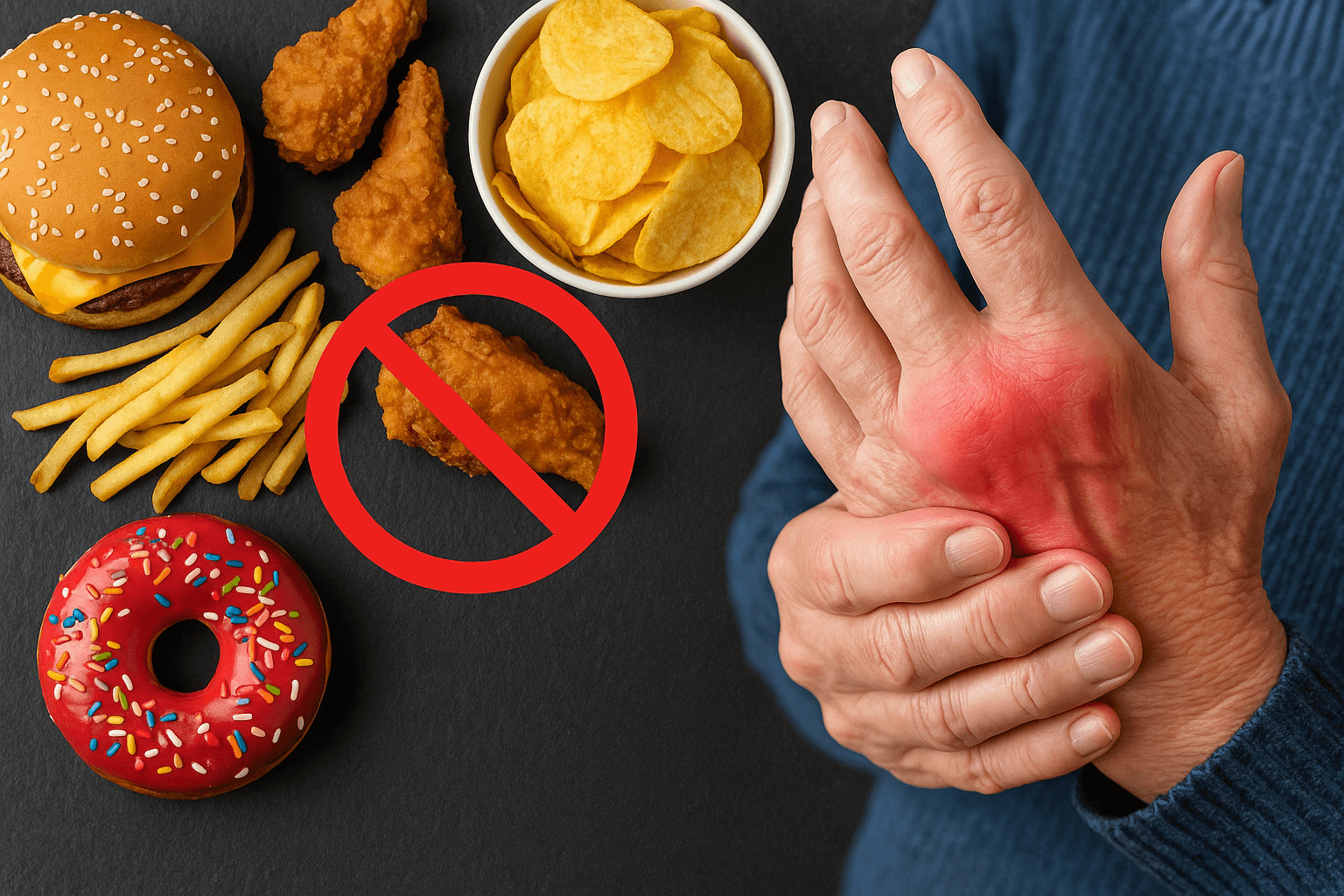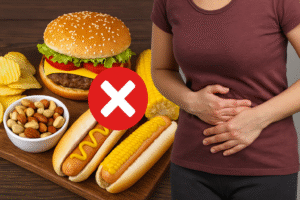If you have arthritis, you know just how difficult it can be to manage the aches and stiffness that occur on a daily basis. Sure, medication and exercise are important, but did you also know that diet can make a major difference?
Some foods may even lead to inflammation, intensifying the pain. But there’s the silver lining: by avoiding some of these foods that can cause inflammation, you might find some of that relief that your joints are crying out for.
The Importance of Diet with Arthritis
Inflammation is the name of the game with arthritis. That’s what makes your joints swell, feel tender and hurt. Some foods actually make inflammation worse — they sort of “fuel the fire.” On the other hand, there are foods that can help quiet things down.
So what might you want to avoid to help quiet that inflammation and ease your arthritis symptoms? Let’s break it down.
Sugars: Table Sugar and Fructose (High Fructose Corn Syrup)
Are you hooked on soda or sweet treats? Unfortunately, they might be contributing to your joint pain. An excess of sugar consumption can cause an inflammatory reaction in your body.
- Soft drinks such as soda, sweet tea or energy drinks
- Candy, cakes, and cookies
- Individually wrapped snacks with added sugar
Why it matters: Research suggests that people who eat more sugar have higher blood levels of inflammatory markers.
Pro tip: Sweeten your drinks with honey or a slice of fruit instead.
Saturated and Trans Fats
Fast food, fried foods, and prepackaged baked goods are not only bad for your heart – they can also make your joints hurt. The high saturated and trans fats found in these foods can increase inflammation.
- french fries, donuts, fried chicken
- Margarine and shortening
- Crackers and frozen pizza
The big picture: Trans fats, in particular, have been shown to be associated with higher levels of C-reactive protein (CRP), a key inflammation marker in the body.
Refined Carbs
You know how eating white bread or pasta can leave you feeling bloated or sluggish? Refined carbs aren’t just low in fiber and nutrients — they also make your blood-sugar spike. That can result in —you guessed it — inflammation.
- White bread and rolls
- Regular pasta and white rice
- Sugary cereals and pastries
Why it matters: Spiking levels of blood sugar can stimulate the body’s inflammatory response, and that’s never good when you have arthritis.
Give this a try: Replace white bread with whole-grain options, such as oats, brown rice or quinoa.
Red and Processed Meats
We’re not suggesting you need to go vegan, but high intakes of both red meat (think beef and pork) and processed meats (the likes of sausages and deli meats) could be the wrong approach for arthritis patients. These foods are high in nitrites and other compounds that promote inflammation.
- Hot dogs, bacon, sausage
- Smoked or cured meats
- Steak and burgers (especially those made in larger quantities)
Why it matters: Some studies suggest that red and processed meats are associated with higher levels of inflammatory markers and more severe symptoms of rheumatoid arthritis.
Better option: Consider lean protein and leaner sources, such as chicken, fish or plant-based options, such as lentils and beans.
Some vegetable oils and omega-6 fatty acids
Not all fats are bad, but some veggie oils are loaded with omega-6 fatty acids. We do need some omega-6 in our diets, but too much can disrupt the body’s balance and send inflammation spiking.
- Corn, sunflower and soybean oils
- Processed snacks and fast foods made with these oils
Why it matters: An out-of-whack omega-6 to omega-3 ratio could exacerbate joint inflammation, if you already have arthritis.
Top up with omega-3s from fatty fish, such as salmon, or chia seeds instead.
Alcohol
For some people, an occasional glass of wine is probably not an issue, but regular alcohol consumption can boost inflammation and contribute to joint damage over time. It’s particularly problematic for people with types of arthritis that already affect the liver, such as rheumatoid arthritis and gout.
Why it matters: Alcohol can cause an acute attack of joint pain and raise the risk of developing other debilitating conditions.
Keep it in check: If you do drink, drink in moderation — and consult your doctor first.
Salt and Preservatives
Too much salt isn’t just bad for blood pressure — it can promote inflammation in the joints too. And many processed foods are packed with sodium and preservatives like MSG (monosodium glutamate). These can exacerbate the symptoms of arthritis.
- Canned goods and prepackaged soups
- Frozen meals and snack chips
- Fast food or restaurant meals prepared with saltipelines
Why it matters: Excessive salt in the diet can promote water retention, which can mean more swelling and pain in your joints.
Opt for low-sodium varieties, and consider using herbs such as basil or turmeric to add flavor.
Putting It All Together
Cutting out these inflammatory foods can make all the difference in how you care for arthritis. It could require some social effort to change your dietary habits, but the payoff — diminished pain and increased capacity to escape danger — is worth it.
Here’s a clear list of what to curtail:
- Sugary drinks and sweets
- Fried foods and trans fats
- White bread and refined carbs
- Processed meats
- High omega-6 veggie oils
- Alcohol
- Salty and preserved foods
Just remember: This is not to say you are never allowed to have a slice of pizza or a glass of wine. It’s really about balance and finding out what works best for your body. Everybody is different — so pay attention to how your joints feel after you eat certain meals.
Need a starting point?
Try keeping a food diary. Keep a food log and a “mood” log. This can help you identify patterns and which foods may be causing flare-ups.
The Bottom Line
With arthritis, food is more than fuel — it is medicine. Avoiding inflammatory foods will provide the support you need to get your joints healthy back on track and to increase your quality of life.
So next time you’re tempted to grab that cookie, consider your joints. Your body will thank you!
Have you discovered that certain foods affect your arthritis for better or worse? Be sure to let us know your thoughts in the comments below.








